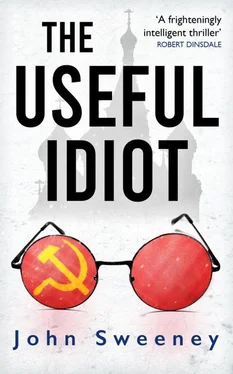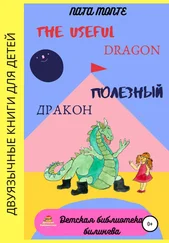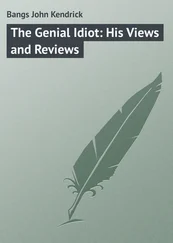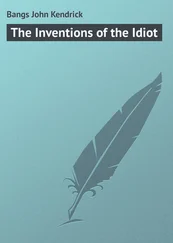John Sweeney - The Useful Idiot
Здесь есть возможность читать онлайн «John Sweeney - The Useful Idiot» весь текст электронной книги совершенно бесплатно (целиком полную версию без сокращений). В некоторых случаях можно слушать аудио, скачать через торрент в формате fb2 и присутствует краткое содержание. Город: London, Год выпуска: 2020, Издательство: Silvertail Books, Жанр: Исторический детектив, Триллер, на английском языке. Описание произведения, (предисловие) а так же отзывы посетителей доступны на портале библиотеки ЛибКат.
- Название:The Useful Idiot
- Автор:
- Издательство:Silvertail Books
- Жанр:
- Год:2020
- Город:London
- ISBN:нет данных
- Рейтинг книги:4 / 5. Голосов: 1
-
Избранное:Добавить в избранное
- Отзывы:
-
Ваша оценка:
- 80
- 1
- 2
- 3
- 4
- 5
The Useful Idiot: краткое содержание, описание и аннотация
Предлагаем к чтению аннотацию, описание, краткое содержание или предисловие (зависит от того, что написал сам автор книги «The Useful Idiot»). Если вы не нашли необходимую информацию о книге — напишите в комментариях, мы постараемся отыскать её.
* * *
The Useful Idiot — читать онлайн бесплатно полную книгу (весь текст) целиком
Ниже представлен текст книги, разбитый по страницам. Система сохранения места последней прочитанной страницы, позволяет с удобством читать онлайн бесплатно книгу «The Useful Idiot», без необходимости каждый раз заново искать на чём Вы остановились. Поставьте закладку, и сможете в любой момент перейти на страницу, на которой закончили чтение.
Интервал:
Закладка:
As Jones sought to close the gap between them, he wondered what on earth he was going to say to Zakovsky when he caught up with him. But he had not yet reached the figure when a noise behind him made him turn around – and he saw, coming along the street, the box on wheels with the shark’s teeth grille.
As it swept past, he saw that the passenger window was down and through that Lyushkov’s face. The Kapitan waved happily at Jones, like a schoolboy on a day trip to the seaside. The limo was moving fast, churning up slush as it passed. As it caught up with the man ahead, the limo slowed to his pace. Then there was a shout. Two shots rang out and the man fell to the ground, the limo accelerating away into the night.
Jones hurried to the fallen man, but it was already too late. Zakovsky was lying in a pool of blood, face upright, his black fur hat still sitting in place. Kneeling down at his side, Jones lowered his head to his chest, listening for the breath of life. In the distance a tram clanged its bell; close by, a dog barked monotonously.
From Zakovsky, nothing.
Jones studied the corpse and thought of his poor boy, Marlen, staring woodenly at the camera. One bullet had gone to the heart, a second to the head. The widening pool of blood came from his chest; his left temple had been pierced by a neat hole.
Above him, he heard shouts, windows being opened. Bending low, he unbuttoned the dead man’s coat, felt in his inside pocket and found two envelopes, both addressed to “Comrade Oumansky”, one in Duranty’s handwriting, one in his own. Fishing out his own envelope, he stashed it in his pocket.
A police siren sounded, the klaxon becoming louder. Jones hesitated, uncertain what to do: should he stay, seek to explain why he had robbed the corpse of a Chekist colonel murdered in cold blood? In the end, it was impulse that drove him. Standing up, Jones saw an alley leading to a dim courtyard and hurried towards the darkness. Behind him, a fan of light was cast on the snow as someone above opened a window and started shouting in Russian, “Hey you! Why are you running away?”
The alley opened out into a courtyard. On the far side of it there was a brick wall, so high that it rose up into the night. He moved crabwise to his left. Feeling his way rather than seeing, he tripped over a low chain fence and came crashing to the ground, his trilby flying, his cheekbone bashing against the asphalt, his head smashing into a raised stone pavement. When his hand went to his scalp, his palm came away thick with blood; blood was dripping down the front of his coat; blood was pattering onto the snow beneath him.
Jones looked desperately around, but there seemed no possible exit. In the far left corner a drainpipe climbed to a balcony. Beyond that, he couldn’t see. Behind him, he heard shouts. Then, a thin pencil of light from a torch lanced through the darkness.
The police were in the courtyard.
Jones grabbed the drainpipe and started shinning up it. When he got to the top, his hands clawed at the balcony and he edged sideways, until he came to a brick wall at a ninety degree angle. Straddling the wall, he saw only darkness ahead.
Behind him: three torches now, probing the dark. One shaft of light lifted high and caught him.
For a moment, Jones hung there, dazzled by the light.
Four shots rang out, one bullet cracking past his ear.
There was nowhere else to go.
He pitched forwards and fell into blackness.
Chapter Ten
The stage-set for the trial of the coal saboteurs had been removed temporarily for the night’s event and the Hall of Columns transformed into a lecture hall. Comrade Oumansky was the master of ceremonies. Twitching nervously, he spoke some words of praise – and then Professor Aubyn trotted up to the dais and blinked in the glare of the spotlights, taking in an audience of a thousand workers who were all on their feet, clapping and cheering and stomping their boots. Aubyn, who had not yet said a word, smiled apologetically, then held up a hand. The applause softened, people sat down and he let out a thin, dry cough. His subject was the reality of the Soviet economic achievement and brevity did not become it. Or him.
“Errm… In many ways… ermm…” There were to be a lot of hesitations. “…the task of accurately assessing the scale and achievement of the Soviet economic revolution is… ermm… beyond the scale of one man…”
The professor paused for a beat, then another. If it was for laughter, it did not come.
“…but it behoves me, in the absence of others, to step into the epistemic breach… ermm…” Momentarily, he lost his flow; then a new spasm of energy jerked fresh life into him and he was off again.
For ten minutes, the professor talked in his high-pitched academic English. Aware of the importance of evidence, of the purity of facts, he set out the details of the progress made thus far in the electrification of the Soviet Union. The truth was in the detail, he intoned. So it was necessary to articulate the output in kilowatts of all Soviet hydro-electric-powered, oil-powered and coal-powered power stations. As he listed their names, their type and the megawatts produced and projected, he occasionally lost his way in the maze of figures.
“And now… ermm… pig-iron.”
Evgenia, sitting on the stage to his right, coughed twice. Professor Aubyn jerked to a halt, eyed the interruption querulously, then continued.
“… Soviet pig-iron production is, in many ways…”
Evgenia coughed for a third time.
“Have you a chill, young woman?”
“The translation, Professor Aubyn?”
“Ermm… what?” He did a near-perfect impression of a toddler forbidden cake.
“I have been asked to translate your speech so that the comrades whose English is not fluent may gather the meaning of your important lecture,” said Evgenia.
“Ermm.”
“This was explained to you earlier.”
“What about pig-iron?”
“First, I must translate what you said about electricity output. So translation of electricity output, then, pig-iron.”
“Errm.”
If it was a concession, it was gracelessly done. Evgenia rattled through the electricity marvel in Russian at a frenzied pace and, when she was done, she turned to Aubyn and said, “Professor, pig-iron.”
The name fitted him just right.
“Pig-iron…”
Jones sat three rows from the front, wrestling with the statistics the Professor Pig-iron was regurgitating. At last, unable to keep up, he went back instead to what had happened two nights ago. His joints still ached from the fall. He’d discovered rabbit droppings in the turn-ups of his trousers so he guessed that he’d landed on somebody’s rabbit hutch. Bruised and bloodied, he’d hurried out onto the street, parallel to the one where Zakovsky had been shot, and from there staggered back to the Hotel Lux.
He feared arrest at every step. What had been striking was that everyone out that night, civilians, police, militia and GPU men, ignored him. It took a while before the answer came to him: that bloodied drunks in the new Soviet civilisation were not an uncommon sight.
When he finally reached the Hotel Lux, the concierge was sitting in her usual place on his landing, half-asleep. He tip-toed past her, not waking her.
It was only when he turned the key in the lock of his room and crept across the threshold that he knew something was wrong.
On the dead centre of his bed was his hat.
Going to the sink, he filled the basin with cold water and washed the blood – Zakovsky’s and his own – from his hands and face. Wincing in pain, he stripped off his bloodied shirt and vest, and resolved to throw them away. But what was the point of trying to hide the fact that he’d been at the murder scene when Zakovsky had been shot?
Читать дальшеИнтервал:
Закладка:
Похожие книги на «The Useful Idiot»
Представляем Вашему вниманию похожие книги на «The Useful Idiot» списком для выбора. Мы отобрали схожую по названию и смыслу литературу в надежде предоставить читателям больше вариантов отыскать новые, интересные, ещё непрочитанные произведения.
Обсуждение, отзывы о книге «The Useful Idiot» и просто собственные мнения читателей. Оставьте ваши комментарии, напишите, что Вы думаете о произведении, его смысле или главных героях. Укажите что конкретно понравилось, а что нет, и почему Вы так считаете.












